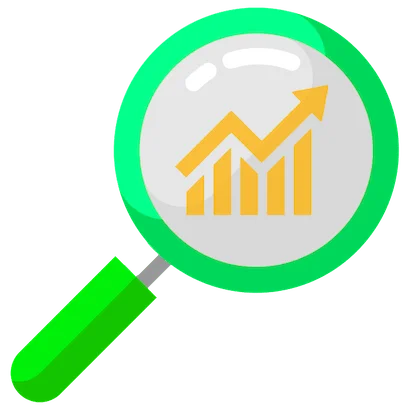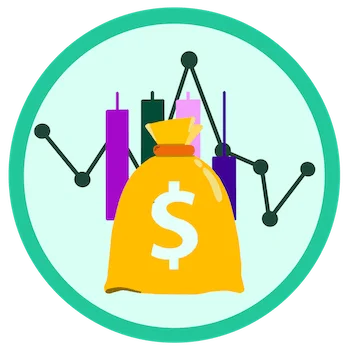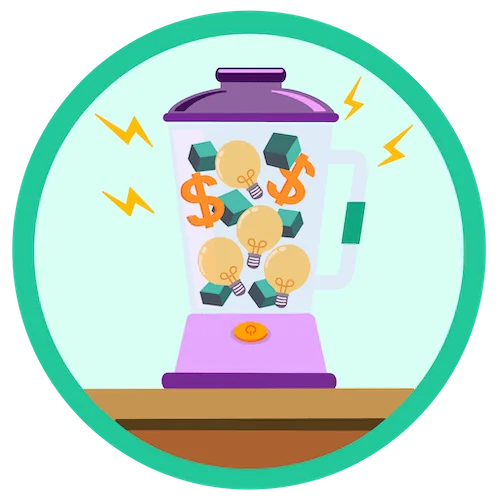
Module 2
Saving Versus Investing
Everyone tells you that saving is critical for the future but is investing better to create long-term wealth?
This module explains the difference between investing & savings, how banks make money & why you can do the same by evaluating companies for their long-term growth potential in order to make your money work smarter.
Module At A Glance
Grade Levels:
7th - 12th
Est. Length:
2-4 Hours (25 slides)
Activities:
9 Activites
Articles:
5 Articles
Languages:
English & Spanish
Curriculum Fit:
Math, Business, Economics, CTE, Social Studies
Standards Alignment:
CEE National Standards, Jump$tart National Standards & Relevant State Standards

Guiding Questions
- What is the difference between saving and investing?
- How do banks make money while paying you?
- What is interest and how does it affect you?
- How do you start saving?
- How do you start investing?
- What is compounding growth?
- How can dollar-cost-averaging help you?
- What is the Rule of 72 and how can it help you estimate how fast an investment will double with a fixed interest rate or rate or return?
Enduring Understandings
- Interest is incredibly important when it comes to saving and in everyday life.
- Interest can either work for you with compound interest, or against you with debt.
- Saving and investing are both important to being financially healthy but they serve different purposes.
- Building a plan to save and invest is best for your future and can make life easier.
- Investing is best if done for the long-term rather than the short.
- Time in the market is more important than timing the market.
Module Vocab & Key Topics
Savings Account
A type of financial account used by individuals to save money and earn interest over time. Typically, a savings account offers a higher rate of return than a checking account, allowing your savings to grow faster.
Certificate of Deposit (CD)
A type of deposit account that pays a fixed interest rate for a predetermined period of time. CDs are often available in short-term (up to one year) and long-term periods (5 years or more).
Money Market Account
A type of bank account with higher interest rates than those offered on traditional savings accounts, but limits the number of withdrawals you can make each month. These accounts also typically require a minimum balance to open and maintain them.
High-Yield Savings Account
An online savings account that offers an above-average interest rate compared to traditional banks; these accounts are typically FDIC insured up to $250,000 per depositor and offer low minimum balance requirements with no hidden fees or charges for opening or maintaining the account.
Individual Retirement Account (IRA)
A tax-advantaged retirement plan that allows you to save money for retirement while potentially reducing your taxes each year; there are several types of IRAs including Traditional IRAs, Roth IRAs, SEP IRAs, SIMPLE IRAs, and Self-Directed IRAs.
529 College Savings Plan
A tax-advantaged investment program designed specifically for college savings; 529 plans are sponsored by states or educational institutions and allow contributors to invest in mutual funds or other types of investments that are managed professionally by fund managers; contributions made into these plans may be eligible for state tax deductions or credits depending on the state in which they occur.
US Savings Bonds
A type of low-risk investment issued by the US Treasury that pays interest semiannually until they mature usually after 20 years; they can be purchased electronically through Treasury Direct or through most major banks and brokerages firms at face value starting at $25 increments up to thousands of dollars; they are also exempt from state taxes as well as many local taxes so they can provide an additional source of income during retirement years when taxed income could become an issue if not managed properly beforehand.
Emergency Fund
A type of financial cushion set aside for unexpected expenses such as job losses, medical bills, car repairs etc.; it is important to establish an emergency fund before investing any extra money in order to protect yourself financially from any unforeseen circumstances; it is recommended that you aim for an emergency fund amount equal to at least three months worth of living expenses.










